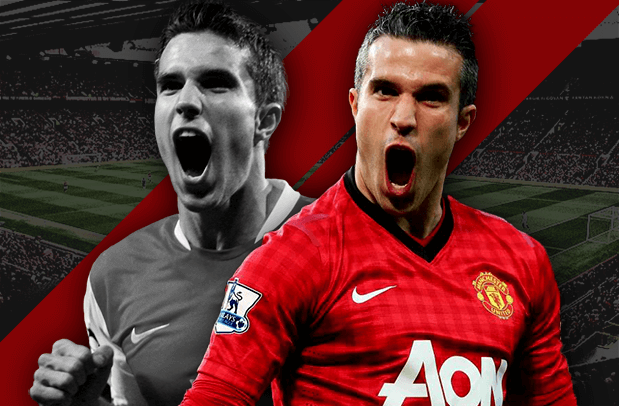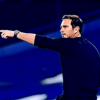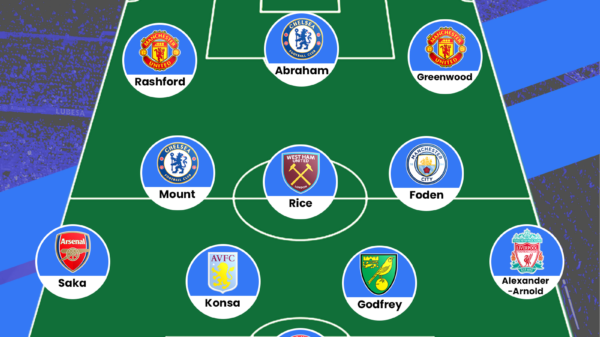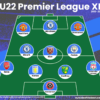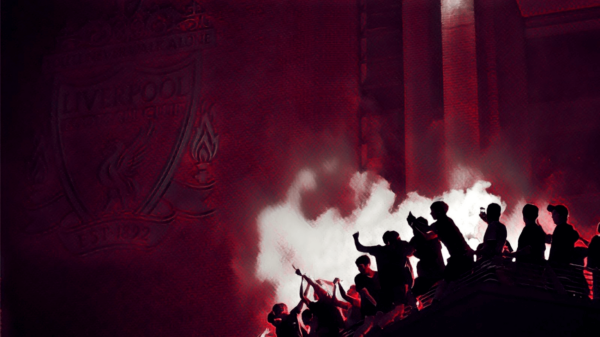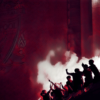If few would’ve envisioned Robin van Persie joining Manchester United in 2012, then even fewer would’ve thought he’d last just a year at the club under Louis van Gaal after a successful World Cup campaign under the experienced manager. Rahul Natarajan looks back at his time in Manchester and explains why the Dutch striker will always be fondly remembered at Old Trafford.
On Wednesday, July 15th, Turkish giants Fenerbahce announced the signing of Dutch captain Robin van Persie from Manchester United. The 32 year-old was greeted by thousands of passionate fans, who filled Fenerbahce’s Istanbul based stadium to see their new striker sign a 3 year deal with the club. Despite all the commotion in Turkey, there was hardly any acknowledgement from Manchester United that Robin van Persie had left the club. It seemed as if the popular Dutchman had been forced out the back door, and theories began to surface that van Persie’s departure from Old Trafford was far from a clean break.
Van Persie himself didn’t help quell the rumors, as his first press conference at Fenerbahce saw him express his gratitude to United’s CEO Ed Woodward, but fail to even mention his compatriot and former manager Louis van Gaal, seemingly confirming that the striker was forced out against his will after a poor 2014/15 season. Amidst all the rumors, a debate that had started when news of van Persie’s exit emerged finally came to the fore with the official confirmation. The central question: what is Robin van Persie’s legacy at Manchester United?

When van Persie completed his 24 million pound move from Arsenal to United, the “little boy” inside him certainly wouldn’t have known his Old Trafford stay would be over in 3 years. The Dutchman left the Emirates to win trophies, and van Persie did indeed end his long-awaited drought for a Premier League title. However, the irony of his story is that the club he left to win trophies have gone on to lift more silverware than the club he joined for that reason in the same time period. But as Manchester United have fallen dramatically from their peak, so has the Dutch captain, who has underperformed significantly in the last two seasons. While van Persie did score a respectable 18 goals in the nightmare 2013/14 season under “he-who-must-not-be-named”, the injuries that plagued the striker’s Arsenal career made an unwelcome return. Van Persie missed 22 games over the course of his second season at Manchester United after going over two and a half years without a significant injury.
Those two and a half years saw the best football of van Persie’s career, as he established himself as one of—if not the—best center forwards in the game at the time. But the striker who wore the number 20 on his back in the 2014/15 season was a shadow of that striker who recorded 107 goals over the last 4 seasons. Van Persie looked sluggish and uninterested; most importantly, he had seemingly lost his sharpness in front of goal. Despite reaching double digits in another injury-plagued season, van Persie could no longer justify his mammoth wages, and van Gaal is likely correct in shipping the striker out just as he did with Radamel Falcao. As a result, it is unlikely van Persie made the lasting impact he believed he would when he left the Emirates for Old Trafford. Therefore, many have concluded the Dutchman will go down as no more than a mere footnote in the history of this storied club.
However, Robin van Persie does indeed leave a legacy at Old Trafford, for leading Manchester United to an unprecedented 20th league title in Sir Alex Ferguson’s final season in charge. While it is true that being the catalyst for a sole league title does not automatically warrant a place in Old Trafford folklore, as many others have come and conquered, and yet still left the club without a legacy to be remembered by, van Persie is different. He traded the red of Arsenal for the red of United at what seemed to be a crossroads for the club. The “noisy neighbors” at the Etihad had snatched the title in the most dramatic of circumstance in the dying embers of the 2011/12 season; as City fans will remind their rivals for decades to come, they clinched their first title in 44 years in Fergie Time.
While the Red Devils lost out solely on goal difference, it seemed as if a power shift was in progress. While the title was officially lost on the back of 8 goals, there is no denying that losses in both Manchester derbies condemned United to second place. Even now, United fans have nightmares of that day in October when City put 6 past David De Gea. More crushing was the defeat in the run in at the Etihad, which leveled the two clubs on points even after United had amassed an 8 point lead with 5 games to go. Combined with the group stage exit from the Champions League, Manchester United were tottering, in danger of slipping from their place in the highest echelons of the game. There was an undeniable gulf in quality between the two Manchester clubs, as years of stringent financial discipline under the Glazers, especially in the post-Ronaldo era, had left a squad bereft of quality, aside from the talismanic Wayne Rooney. For many years, mediocre teams had been propelled by the sheer will of Sir Alex Ferguson, but even the Scot could no longer dominate with such a team. It was a harrowing time for anyone associated with Manchester United, and many feared the collapse of an empire, much like that of bitter rivals Liverpool.
And then Robin van Persie arrived.
Apologies for the cheesy one-liner but the significance of the mercurial Dutchman’s arrival cannot be understated. After announcing his desire to leave Arsenal, van Persie had two main suitors: the red and blue halves of Manchester. It seemed an easy choice: getting a huge paycheck to play alongside world class players for the current English champions. And yet the little boy inside van Persie screamed for Manchester United. Yes, the money was the same as on offer at the Etihad, but aside from Wayne Rooney, the team was devoid of world class talent. There was no guarantee United were the club that would help van Persie gain that elusive Premier League title, and yet he chose Red. Thank God he chose Red. Van Persie’s debut season will go down as one of the greatest debut seasons of all time. There were certainly doubts about his fitness and his age when United paid 24 million to bring the striker to Old Trafford, but from the moment he nonchalantly connected with Patrice Evra’s cross to gracefully power a half-volley into the top corner against Fulham, there would be no more doubts.
During the 2012/13 season, Robin van Persie was second to none. Every weekend, he would produce a moment of magic; a hat-trick against Southampton, winners at Anfield and the Etihad, goals against Chelsea and Arsenal. Even less high-profile goals are fondly remembered: a curler against West Brom, a Bergkampesque turn and finish against West Ham, a finely placed right footed strike against Wigan. He scored, he created, he mesmerized the Old Trafford faithful. Every single thing he did on the football pitch was sublime; this was a complete forward, very much at the peak of his powers, and he transformed an average Manchester United to team into runaway league leaders. For all of Wayne Rooney’s footballing talent, there always seemed to be an industrial side to his game that few have come to appreciate, despite his undoubted ability. Van Persie was different; he was classy, graceful, poetry in motion.
What set him apart though could be seen as a flaw, but to me, is a trait that highlights why he was perfect for Manchester United: his arrogance. Here was a player who was better than everyone else, and he knew it. He would score last minute winners, and bask in the adoration of the fans: “Yes, here I am, I score when I want, how I want.” Robin van Persie epitomized Manchester United, and encapsulated the ethos of a club used to being the best, used to winning in style. It was only fitting that his hat-trick sealed the league title, and of course, he did it like no one else could, with an unbelievable volley that few would have the audacity to attempt.
It is unlikely that his first league title quenched van Persie’s thirst for trophies; instead, it most likely made him hungrier. But I believe van Persie’s decline has a lot to do with Sir Alex Ferguson’s sudden retirement. As Rio Ferdinand recently revealed, no player was more distraught by the news of Ferguson’s retirement than the Dutchman, who had likely joined on the promise that the Scot would be at the helm for years to come. Ferguson, being the serial winner that he was, certainly played a big role in van Persie’s decision to join the club.
His abrupt retirement ended van Persie’s dream of becoming a serial winner like the legendary manager, but in truth, he had already come to embody Ferguson on the pitch that season: an inspiring figure who elevated those around him to greater heights. Manchester United romped to the title that year, all because of Robin van Persie.
Ultimately, van Persie’s Old Trafford career was cut short. Even though Louis van Gaal recently said that van Persie knew of his fate before the summer and had accepted his manager’s decision, there is likely still some bitterness at the way things ended for the Dutchman. Arsenal fans mock his trophy haul in comparison to theirs after his departure, and condemn him to never achieving legend status, for leaving Arsenal a traitor and being forced out of Manchester United.
But van Persie’s decision to leave the Emirates was justified: he won the league title he craved, and while he might not be an Old Trafford legend in the vein of a Ryan Giggs or a Paul Scholes, van Persie will always be remembered for that 2012/13 season, when he reaffirmed the stature of this great club in a time of crisis. Robin van Persie chose the number 20 to bring home title number 20, and he succeeded in his quest, all the while producing moments of magic.
Thank you Robin, and good luck in Turkey.
Written by Rahul Natarajan
- A Tribute to Robin van Persie - July 23, 2015
- Chris Smalling: Redemption Achieved? - June 10, 2015
- The story of Ashley Young’s resurgence under Louis van Gaal - April 29, 2015




















































